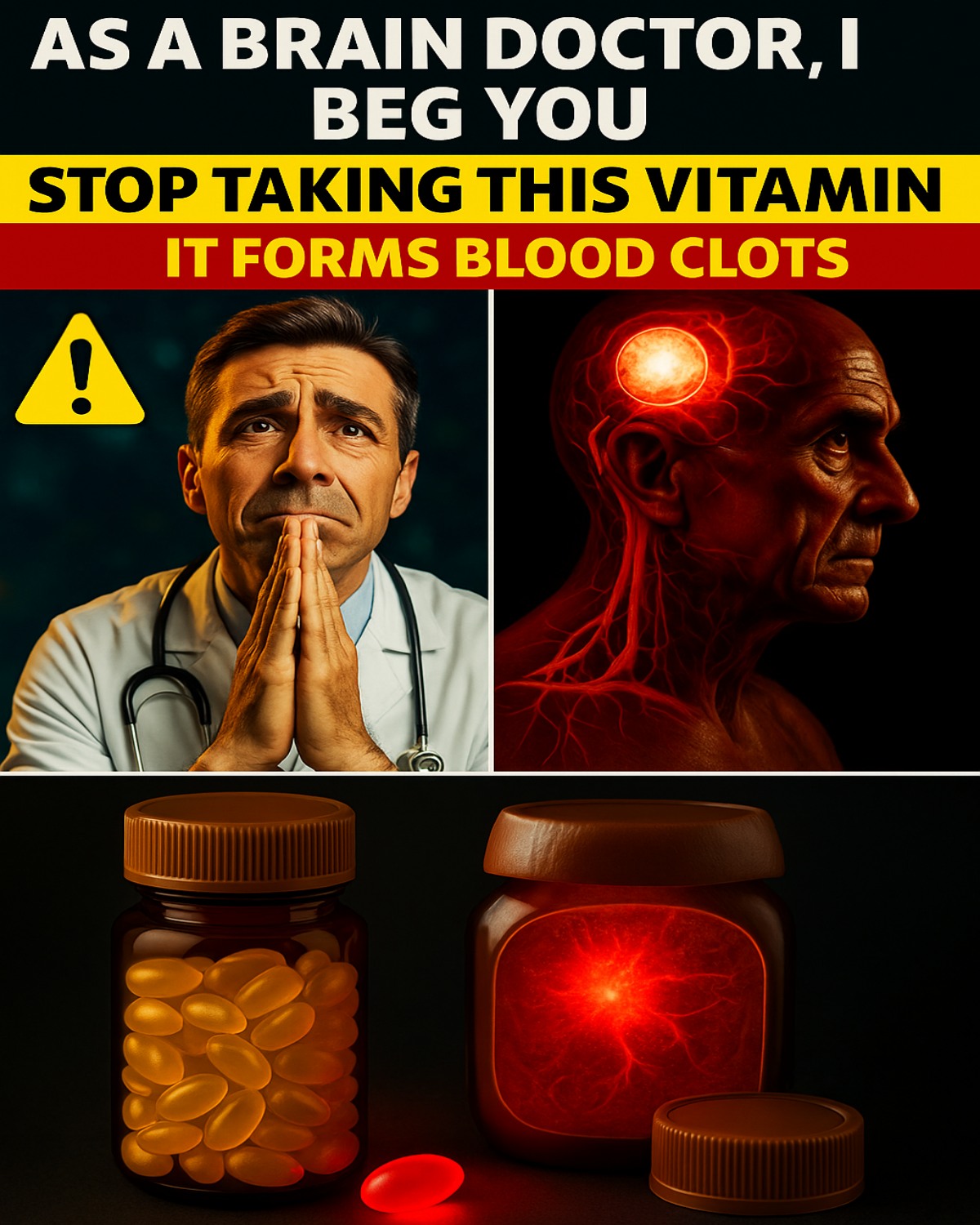The Dangers of Fear-Based Health Messaging: A Critical Look at Viral “Stop Taking This Vitamin” Claims
In recent years, social media has become one of the most influential sources of health information. While this accessibility can be beneficial, it has also given rise to an alarming trend: fear-driven medical content designed to provoke strong emotional reactions rather than provide accurate, evidence-based guidance. The image in question—featuring a worried doctor, a dramatic glowing brain, and bottles of vitamins—serves as a clear example of this style of misleading messaging.
The headline, “As a Brain Doctor, I Beg You: Stop Taking This Vitamin — It Forms Blood Clots,” is intentionally crafted to shock the viewer. The design relies on vivid colors, emotional expressions, and ominous symbols to create a sense of urgency and fear. Yet, despite the bold claim, the image offers no scientific explanation, no specific vitamin, and no verifiable medical references. This raises an essential question: why do such messages gain widespread attention, and why are they potentially harmful?
The Psychology Behind Alarmist Health Content
Images like this are engineered to pressure the viewer into immediate concern. Several psychological triggers are used:
Authority Appeal
The image shows a man dressed as a medical professional, hands clasped as if pleading. This visual implies expertise, even though the identity or credentials of the person are unknown. Associating the message with a supposed “brain doctor” increases perceived legitimacy.
Fear and Urgency
Terms like “stop taking this vitamin” and “it forms blood clots” generate anxiety. In health communication, fear is a powerful motivator—but when misused, it becomes manipulative and dangerous.
Graphic Medical Imagery
The glowing red brain and the enlarged blood vessels are stylized to evoke danger. Although visually striking, such imagery often has little relation to real medical science.
Lack of Specificity
The image purposely avoids naming the vitamin it warns against. This vagueness encourages viewers to fill in the gaps themselves, potentially leading to unnecessary fear about supplements they currently take.
The Real-World Consequences of Misinformation
Health misinformation is not a harmless trend. It can influence real decisions with serious consequences:
People may abruptly stop beneficial supplements without consulting a healthcare provider.
Patients with medical conditions may become confused about their treatment.
Public trust in legitimate healthcare professionals may decline as sensational content competes with scientific guidance.
Anxiety and stress increase, especially among individuals already worried about their health.
False claims about vitamins and blood clots are especially problematic. Blood clotting disorders are complex medical conditions influenced by genetics, lifestyle, medications, and underlying diseases. Vitamins themselves—when taken within recommended doses—are rarely the cause of severe clotting events. Any supplement or medication, however, can interact with specific medical conditions, which is why personalized medical advice is essential.

